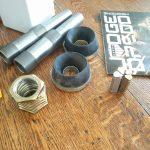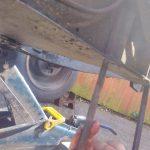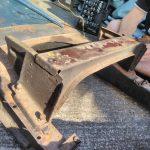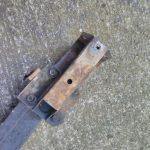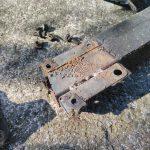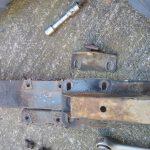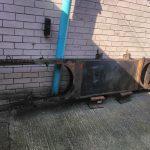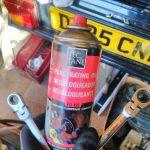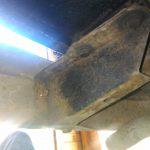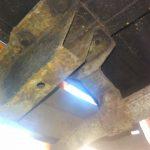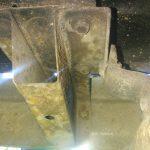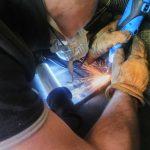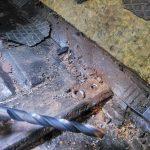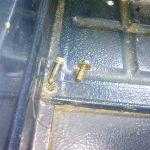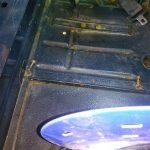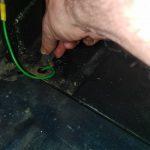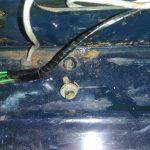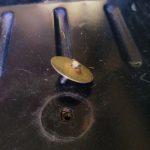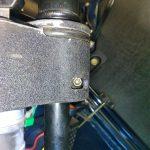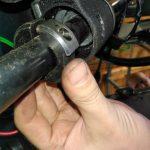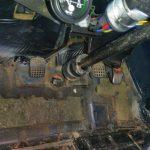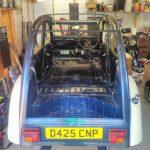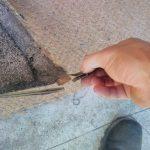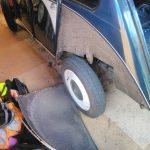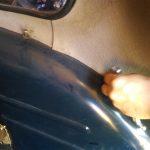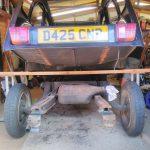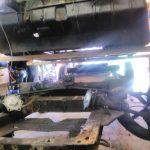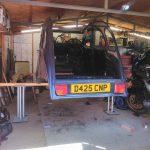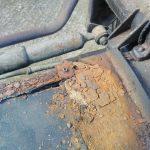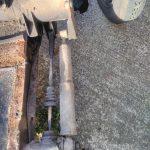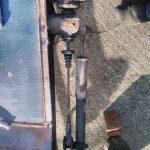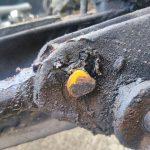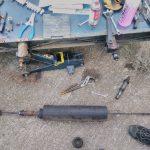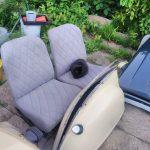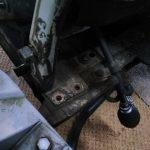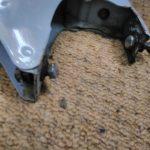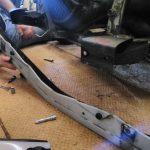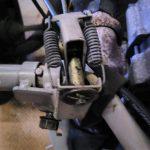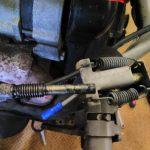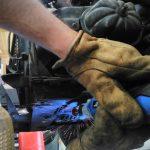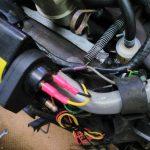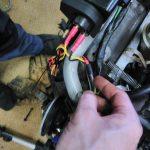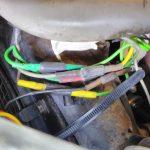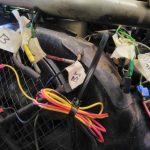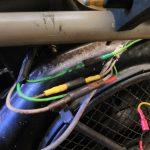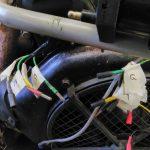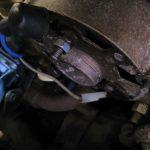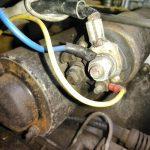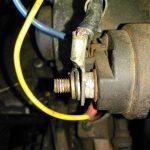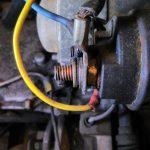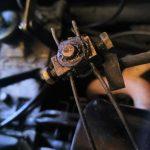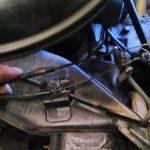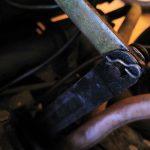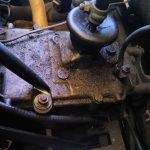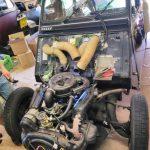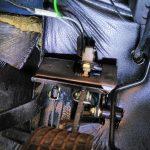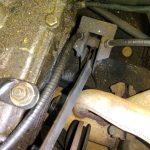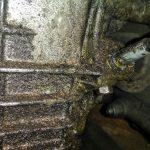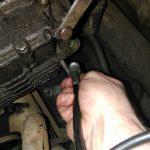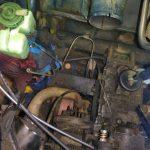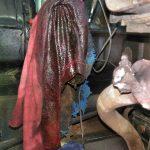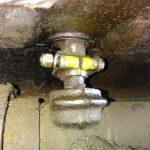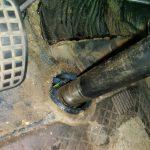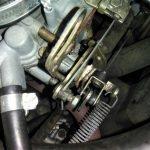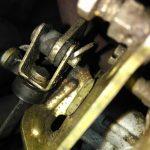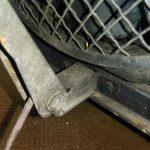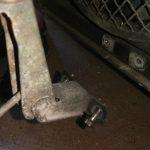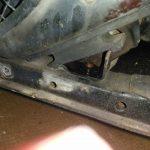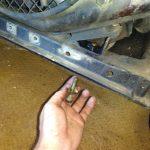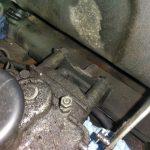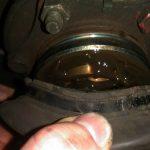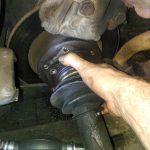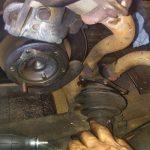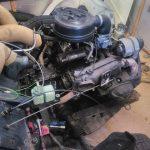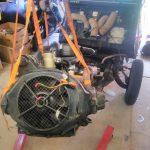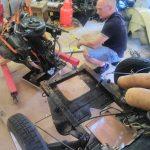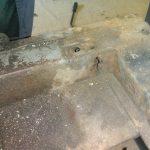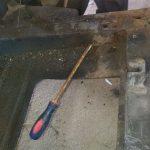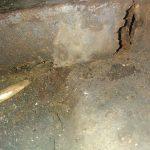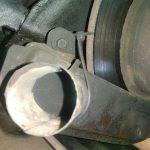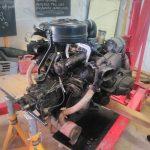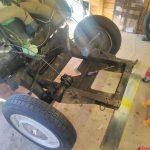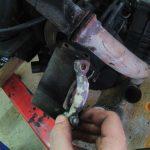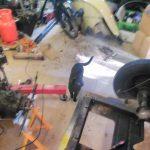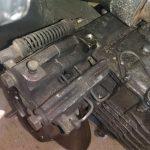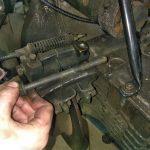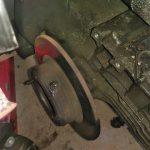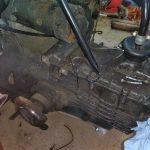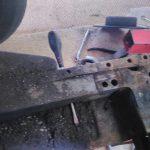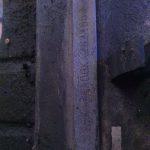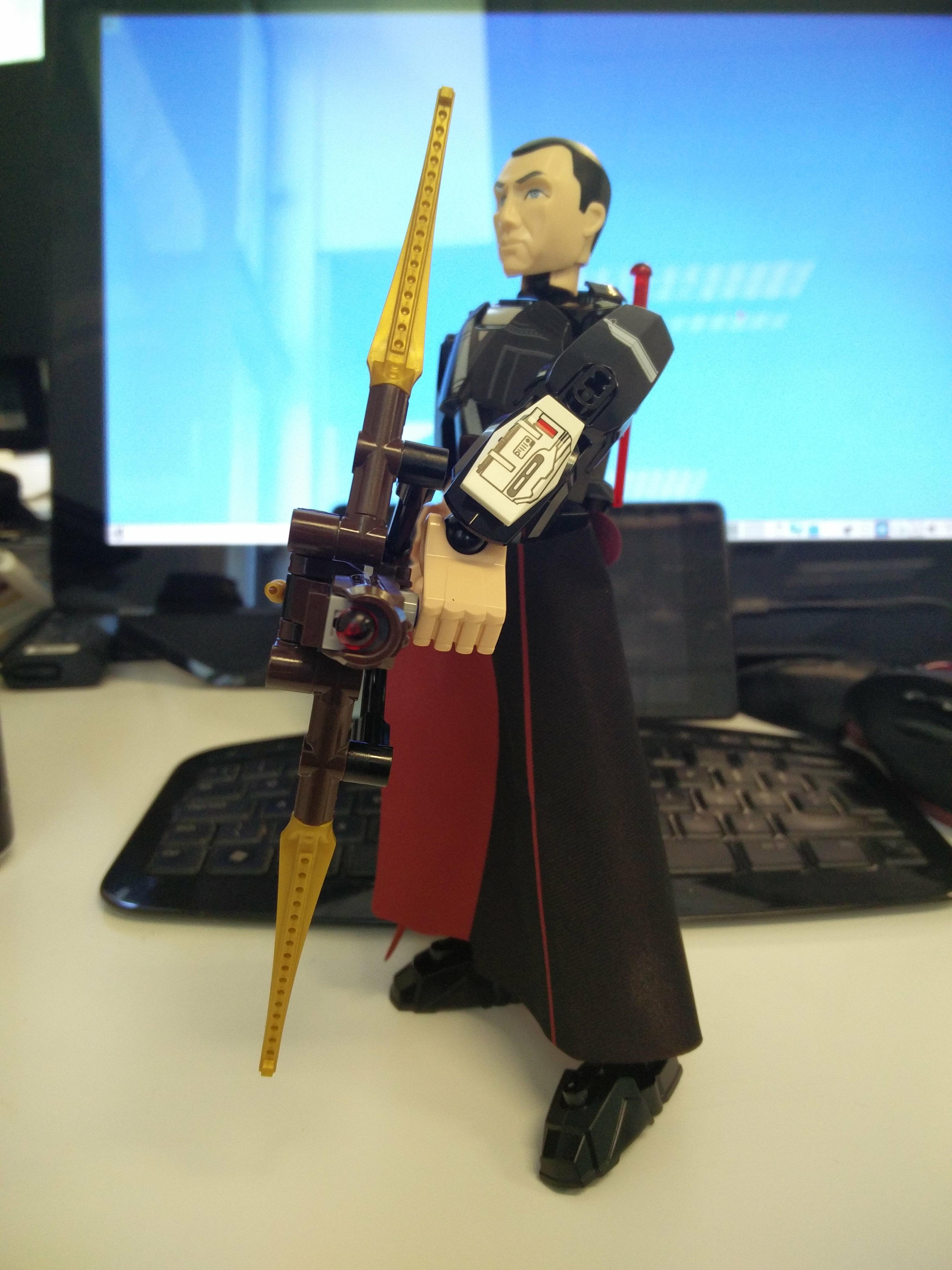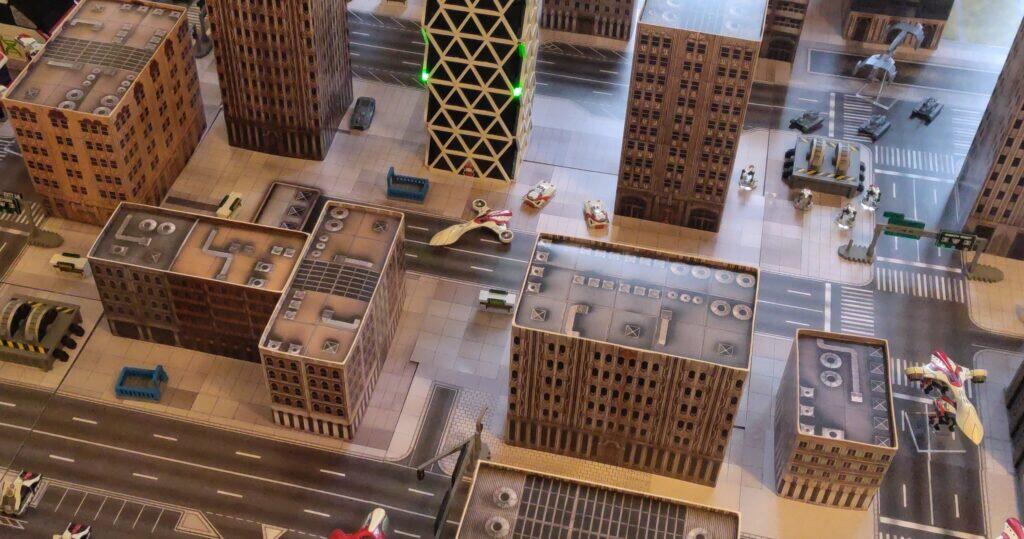
2CV rechassis – Day 3
24th May 2017 23:212CV rechassis – Day 2
23rd May 2017 23:162CV rechassis – Day 1
22nd May 2017 23:07
Lego Chirrut Îmwe (75524)
8th May 2017 21:47
B-17 combat box
7th May 2017 19:11
2CV cylinder head fitting
15:29With the cylinder heads and the crank case done the next step was to put them together.
The old head studs were somewhat the worse for wear so I have got some high tensile stainless replacements. Some blue thread lock on the crank case ends and the usual double nut technique and they were installed. The two longer studs go on the top and the shorter one at the bottom.


Next the valve push rods go into the head through the push rod tubes. The more domed end goes into the rocker end and the flatter end goes into the tappets.

The adjusters should be wound fully out at this stage to make assembly easier. Some petroleum jelly will provide additional lubrication for the first run and the surface tension will hold the push rods into the cups on the actuators.
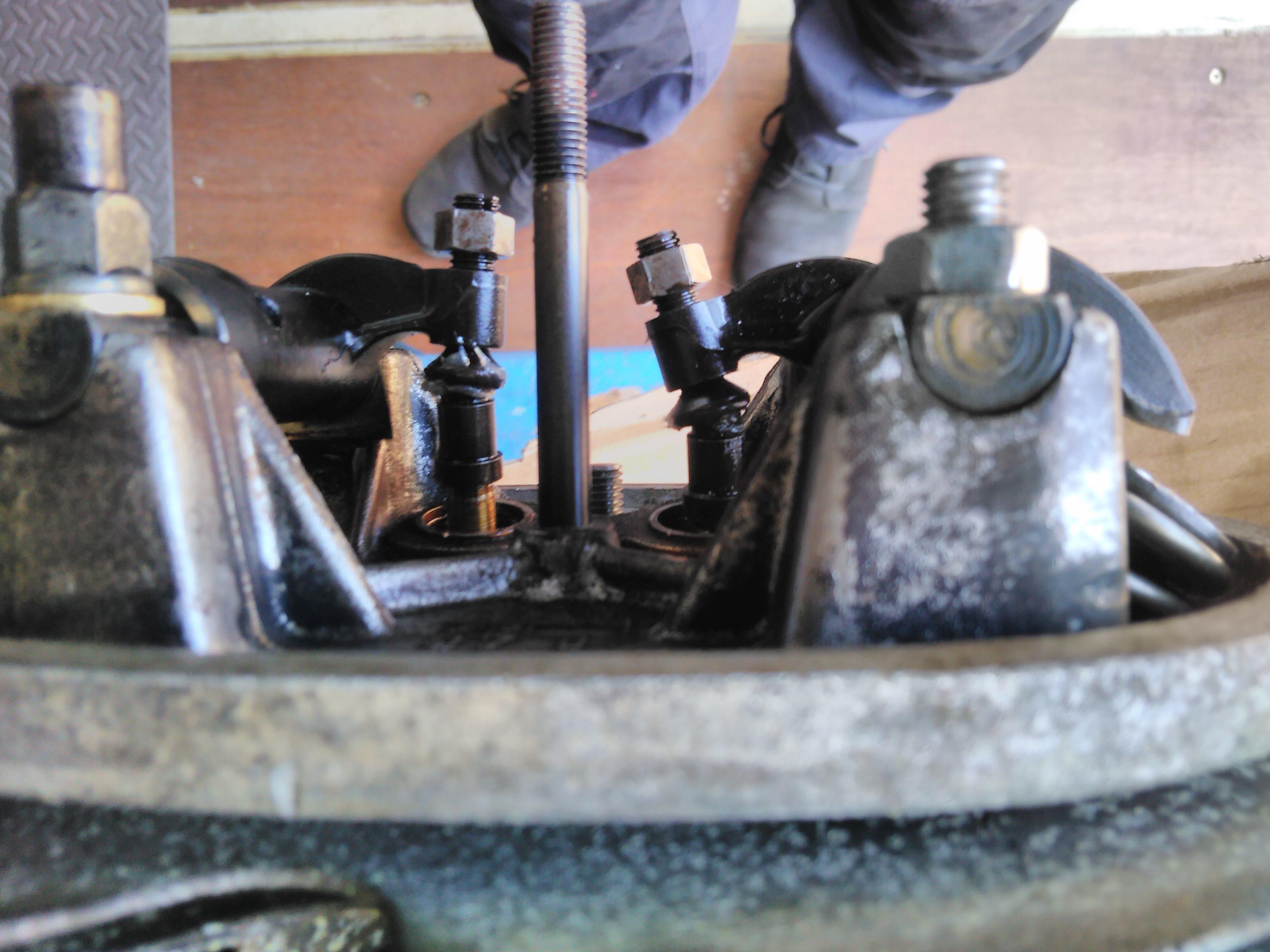
The push rod tube seals and springs need to go on – there is a right and a wrong way so check the manual to make sure you get the alignment right for the engine.
As they’re at different angles, fitting the head onto the studs and the push rods into the crank case is another three dimensional puzzle that requires some finagling before it all slots into place.

Finally the head studs are done up the initial torque. The final torquing is done once the manifolds are fitted.

With some spark plugs in turning the engine over there was a good amount of compression so that’s an encouraging sign.
Finally the rocker clearances can be set.
Voter targeting
4th May 2017 09:53It wouldn’t be an election day if I didn’t remind you it’s not a secret ballot. Notice that officials record the serial number of your ballot sheet against your entry on the electoral roll so your vote can be traced. The intent of this is so an investigation can be carried out in the event of an accusation of electoral fraud.
It’s been a while since I read the letter of the law on this (and I did read the relevant act of parliament) but IIRC the protections round this are nominal. Fortunately this is one occasion that you should be thankful that the people you are electing aren’t competent enough to be using this data. (With the corollary that sufficiently advanced incompetence is indistinguishable from malice.) The one saving grace is this is currently a paper record. However, if it was stored electronically then I’m sure by now Russia would have hacked it and leaked it to whoever they thought was most likely to destabilise the country.
If you were to combine this data with profiles from both social media and advertising data brokers you would have a perfect bubble targeting campaign. Not only can you reinforce the beliefs of your own supporters but you can also use the matches on people who voted for your opponents to spread disinformation (fake news) to discredit them. (Note that the “perfection politics” of the left’s voters are particularly susceptible to this later tactic.)
This isn’t idle speculation, all the elements of this scenario have been reported recently. Hacking aside, none of this is difficult. In fact, it’s pretty much an ideal case study in current online advertising practice. Even the online marketing Twitter bots agree with me on this:

When marketing commercial tat the source data generally comes from customer databases, analytics and market sector demographics – when marketing political tat the ideal source data would be voting records which, if it were a true secret ballot, would be unavailable.
Don’t let this put you off from voting (that’s the perfection politics I mentioned earlier) but do be aware that there is plenty of credible evidence that this kind of thing is happening in world politics at the moment.
B-17 Squadron Heraldry
1st May 2017 17:33When initially looking at the heraldry I had left the B-17 numbering until later. I couldn’t find any available transfers that would fit what I needed so I’ve got some transfer paper and made up my own sheet.
By the point in the war this scenario is set (11 September 1944) the majority of aircraft would have been silver (or natural metal finish as it’s sometimes known) so the markings would have been black. (There would have been a few olive drab aircraft sill in service but I’m going with 12 silver aircraft.)
The identification symbol for the 100th BG was a square with a D inside. This appeared on both sides of the tail and – in a slightly larger box – on the upper and lower surfaces of the wings.
The code for 351 squadron of 100th BG is EP and the aircraft have a single letter identification code. As for the Luftwaffe aircraft I’ve gone for an idealised/abstract sequence of A-M (missing I as it doesn’t look great). The squadron code appears on each side of the fuselage and, smaller, on both sides of the tail.
Finally there’s the individual aircraft’s serial number which appeared on both sides of the tail above its identification code. There are valid ranges for these but, for what I’m after, a set of random numbers in the 200,000 – 400,000 range is close enough.
With all that, a USAF lettering font, and some measuring of images from various sources and I’ve got enough to produce a vector image that I can print on the transfer paper:





